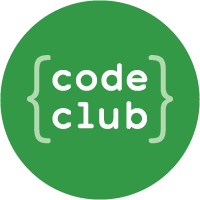 | |
| Founded | 2012 |
|---|---|
| Founder |
|
| Location | |
Area served | United Kingdom |
| Website | codeclub |
Code Club is a voluntary initiative, founded in 2012. The initiative aims to provide opportunities for children aged 9 to 13 to develop coding skills through free after-school clubs. As of November 2015, over 3,800 schools and other public venues established a Code Club, regularly attended by an estimated 44,000 young people across the UK. [1] The organization also expanded internationally, and there are now over 13,000 Code Club operating worldwide. [2] Volunteer programmers and software developers give their time to run Code Club sessions, passing on their programming skills and mentoring the young students. [3] [4] Children create their own computer games, animations and websites, learning how to use technology creatively. [5]
Contents
It has Scratch, HTML & CSS, Python and a variety of other coding languages. The initiative also provide free BBC Micro:bits to children above the age of 9.